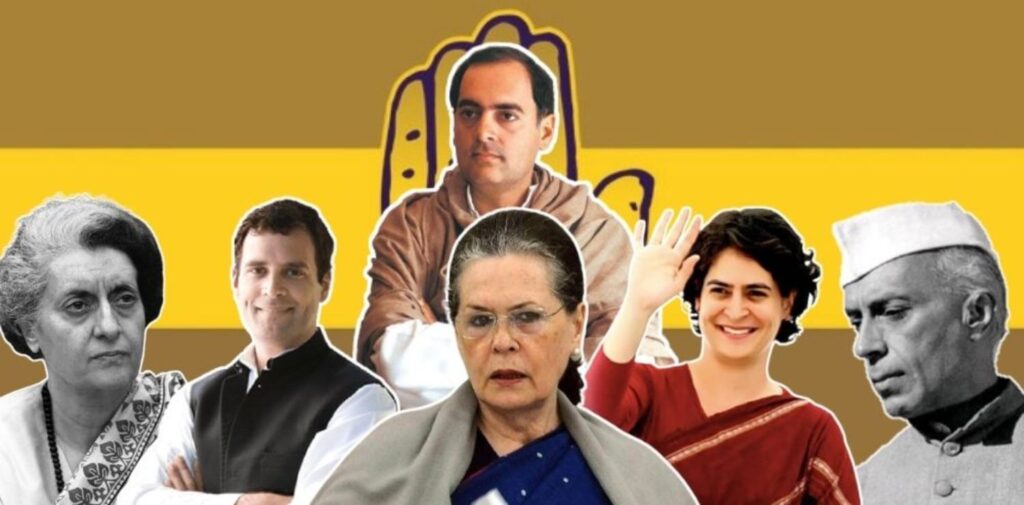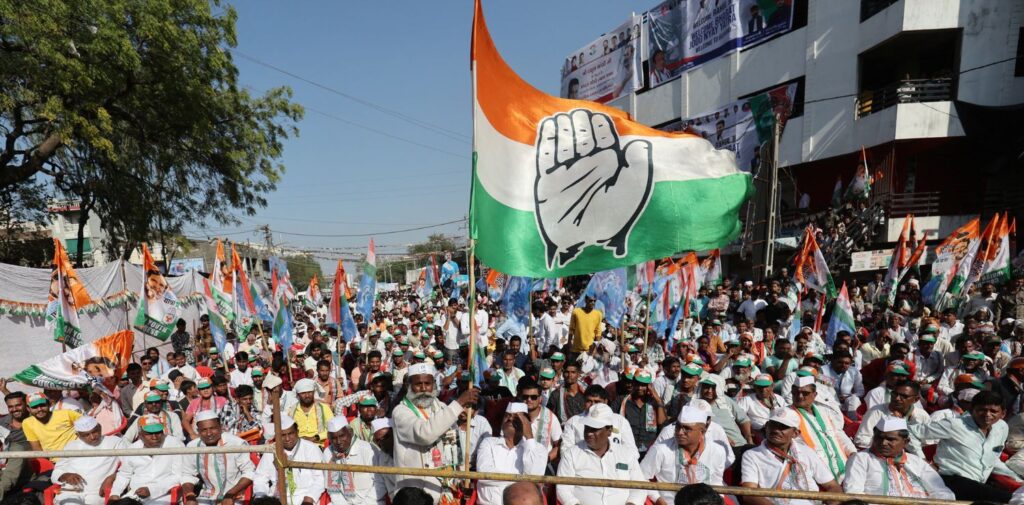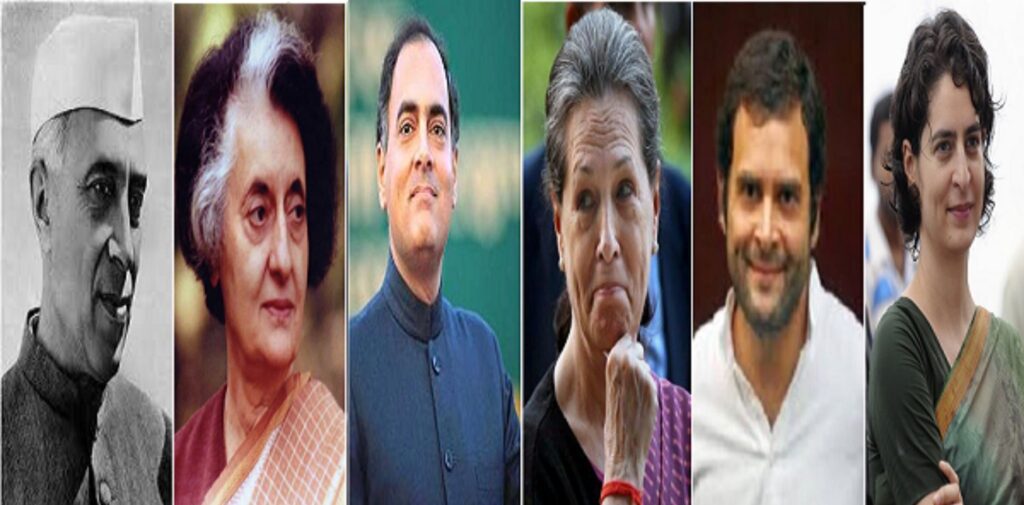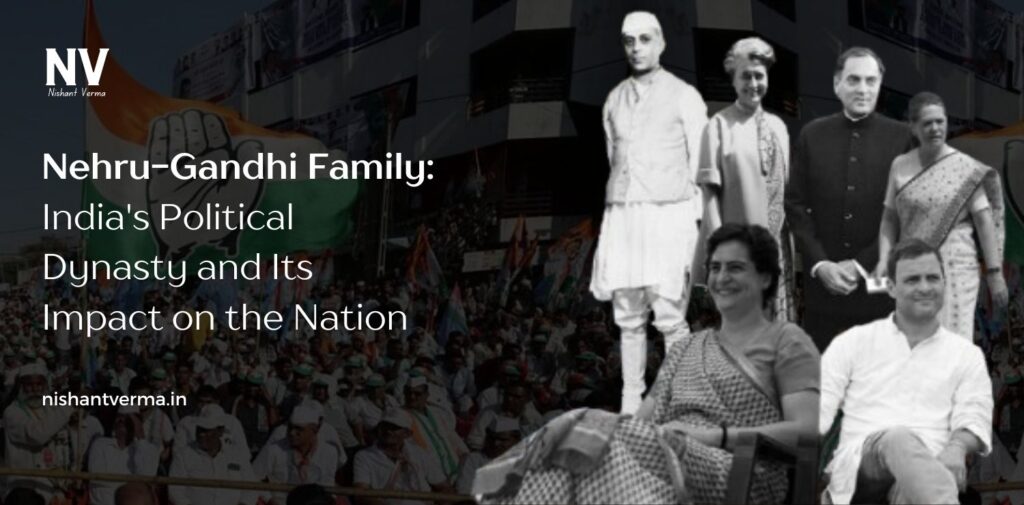India, the world’s largest democracy, has witnessed a unique political journey since its independence in 1947. One of the most influential forces in Indian politics has been the Nehru-Gandhi family, a political dynasty that has held a significant grip on power for much of India’s post-independence history. Their impact on the country’s political landscape has been profound, with both positive and negative consequences.
The Nehru-Gandhi family has played a central role in shaping India’s political narrative. From Jawaharlal Nehru, the first Prime Minister of India, to his descendants, the family has produced leaders who have governed the country for several decades. But what does this mean for Indian democracy? Is the family’s dominance a sign of strong leadership, or does it point to deeper issues within the country’s political system?
The Rise of the Nehru-Gandhi Family
The roots of the Nehru-Gandhi family’s political dominance trace back to Jawaharlal Nehru, India’s first Prime Minister. Nehru was not only a key figure in the struggle for India’s independence but also a visionary who set the foundation for the country’s economic and social development. His leadership during the early years of the nation was crucial in shaping India’s democratic institutions and international standing.
Nehru’s legacy as a leader was carried forward by his daughter, Indira Gandhi, who became the Prime Minister in 1966. Indira’s political career was marked by significant achievements but also controversial decisions. She took bold steps, including nationalizing banks and imposing the Emergency in 1975, which curtailed civil liberties for a period. Despite these controversies, Indira maintained a stronghold over the country’s politics.
After Indira’s tragic assassination in 1984, her son Rajiv Gandhi assumed leadership of the Congress Party and became the youngest Prime Minister of India at the age of 40. Rajiv’s time in office saw the rise of technology and a push for economic reforms, but his tenure was also marred by allegations of corruption, especially following the Bofors scandal. Nevertheless, Rajiv’s legacy remains a topic of debate, with some seeing him as a reformist and others criticizing his inability to navigate the political challenges of his time.

The Political Dynasty: Strength or Weakness?
The Nehru-Gandhi family’s continued hold on power, even decades after India’s independence, has sparked much debate. On one hand, the family’s long-standing presence in Indian politics has helped create stability and a sense of continuity in the leadership. The Nehru-Gandhi family is often seen as a symbol of unity and strength for the Congress Party, which has been one of India’s dominant political forces since independence.
However, on the other hand, this political dynasty has raised concerns about the concentration of power within a single family. Critics argue that India’s democracy has been hindered by a lack of political diversity at the top. When a single family controls the leadership for such a long time, it may limit the opportunity for fresh perspectives and new leadership to emerge. This has led to accusations of dynastic politics, where power is passed down from one generation to the next, often regardless of merit.
In fact, political dynasties are common not just in the Congress Party but across many political parties in India. However, the Nehru-Gandhi family stands out because of its prominence in national politics. The continued leadership of members of the family has led to questions about the health of India’s democracy and whether the country’s political system allows for true democratic choice.

The Impact on India’s Politics
The dominance of the Nehru-Gandhi family has had both positive and negative consequences for Indian politics. Let’s explore both sides:
- Positive Impact
- Stability and Continuity: The leadership of the Nehru-Gandhi family, especially in the early decades of India’s independence, provided stability to the country. Jawaharlal Nehru’s vision of a secular, democratic India laid the foundation for a united nation. His leadership helped establish democratic institutions that continue to play a crucial role in India’s political landscape.
- Social and Economic Reforms: Indira Gandhi’s government made important decisions that impacted India’s growth, including land reforms, industrialization, and improvements in education. She also played a pivotal role in India’s victory in the 1971 war against Pakistan, which led to the creation of Bangladesh. These achievements are part of her lasting legacy.
- Focus on Secularism: The Nehru-Gandhi family has often been associated with secularism, which means promoting a government that does not favor any religion. This vision of an inclusive India has helped maintain social harmony despite the country’s diversity.
- Negative Impact
- Dynastic Politics: One of the major criticisms of the Nehru-Gandhi family’s grip on power is the promotion of dynastic politics. Critics argue that the family has built a system where political power is passed down through bloodlines rather than through merit or public support. This undermines the democratic principle of equal opportunity.
- Political Polarization: The continued presence of the family in power has often resulted in political polarization. People who support the Congress Party see the family as a symbol of leadership, while those opposed to it may view the family as a symbol of corruption and misrule. This division has sometimes hindered national unity.
- Limited Space for Other Leaders: With the dominance of the Nehru-Gandhi family, other leaders have struggled to emerge within the Congress Party and Indian politics in general. This has resulted in a lack of new ideas and fresh leadership. Many politicians within the Congress Party have risen to power primarily due to their association with the family, rather than their own merit.
- Erosion of Institutional Integrity: The concentration of power within a single family has led to concerns about the erosion of democratic institutions. Critics argue that the family’s influence has sometimes undermined the independence of key institutions like the judiciary, the media, and law enforcement agencies. This has raised questions about the strength of India’s democracy.

The Decline of the Nehru-Gandhi Family’s Influence
In recent years, the influence of the Nehru-Gandhi family has been on the decline. The Congress Party, which was once a dominant force in Indian politics, has faced several defeats in national elections. The rise of the Bharatiya Janata Party (BJP), led by Narendra Modi, has led to a shift in India’s political landscape.
The younger generation of the Nehru-Gandhi family, represented by Rahul Gandhi and Priyanka Gandhi, has attempted to lead the Congress Party into a new era. However, despite their efforts, they have struggled to win the confidence of a large section of the Indian electorate. Rahul Gandhi, in particular, has faced criticism for his inability to connect with voters and for the Congress Party’s repeated electoral setbacks.
This has raised questions about the future of the Nehru-Gandhi family in Indian politics. Will they continue to play a central role, or is their time coming to an end? Only time will tell.
Conclusion: A Mixed Legacy
The Nehru-Gandhi family has left an indelible mark on India’s political history. Their contributions to the country’s independence, governance, and international stature cannot be denied. At the same time, their long-standing dominance in Indian politics has raised concerns about the concentration of power, dynastic politics, and the health of India democracy.
As India continues to evolve as a modern democracy, it is important to reflect on the lessons from the Nehru-Gandhi family’s political journey. India’s democracy thrives on competition, diverse leadership, and the free exchange of ideas. Moving forward, the country needs to foster a political environment where leaders rise through merit and public support, rather than family connections.
In the end, the Nehru-Gandhi family’s story is a reminder of the complexities of Indian politics—a mixture of achievements and controversies, of leadership and dynastic control. Their legacy is one that will continue to shape the country for years to come, but India’s future depends on how it embraces new leadership and fresh ideas.




